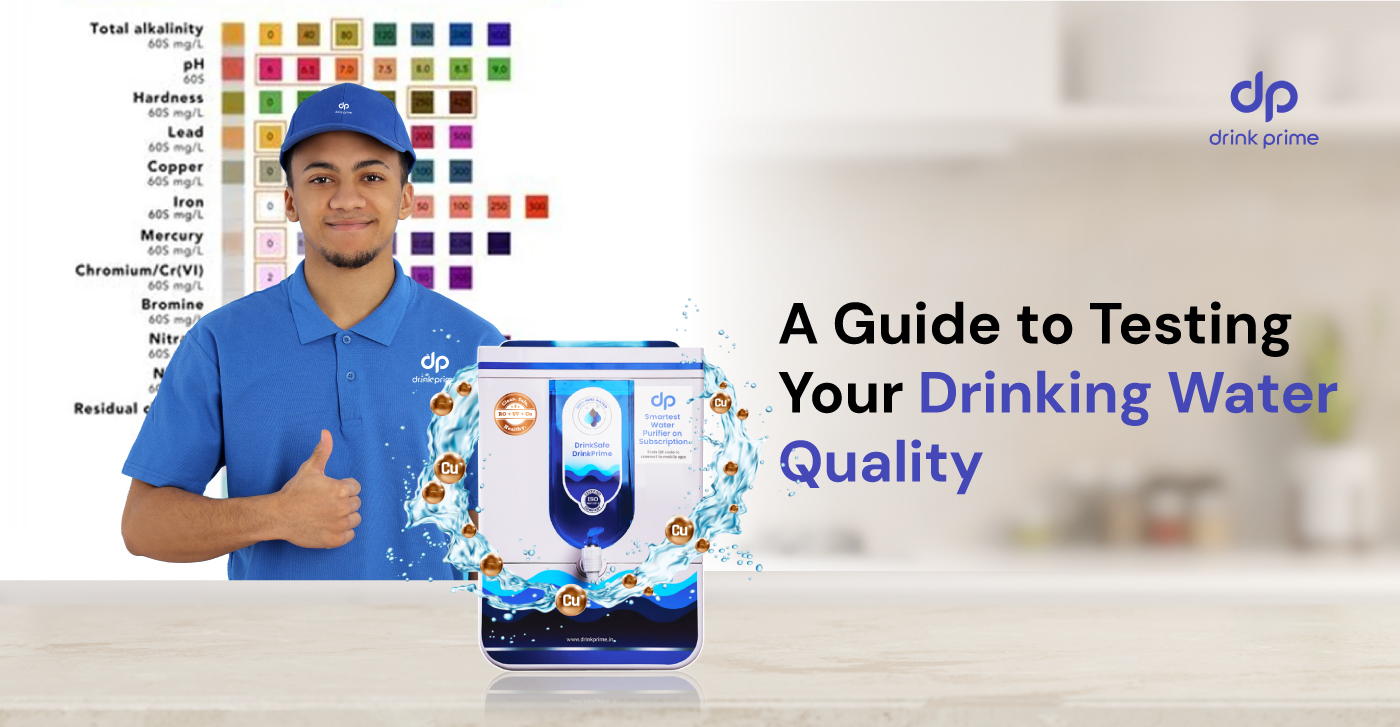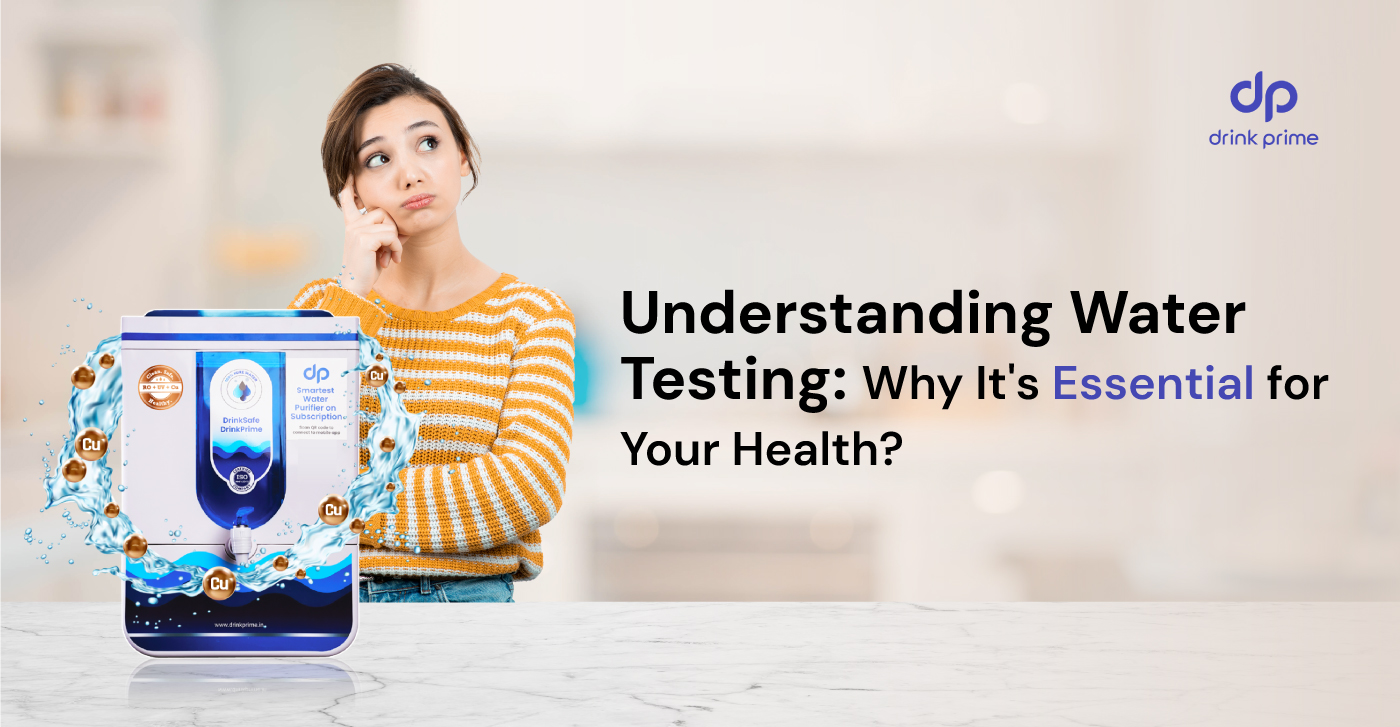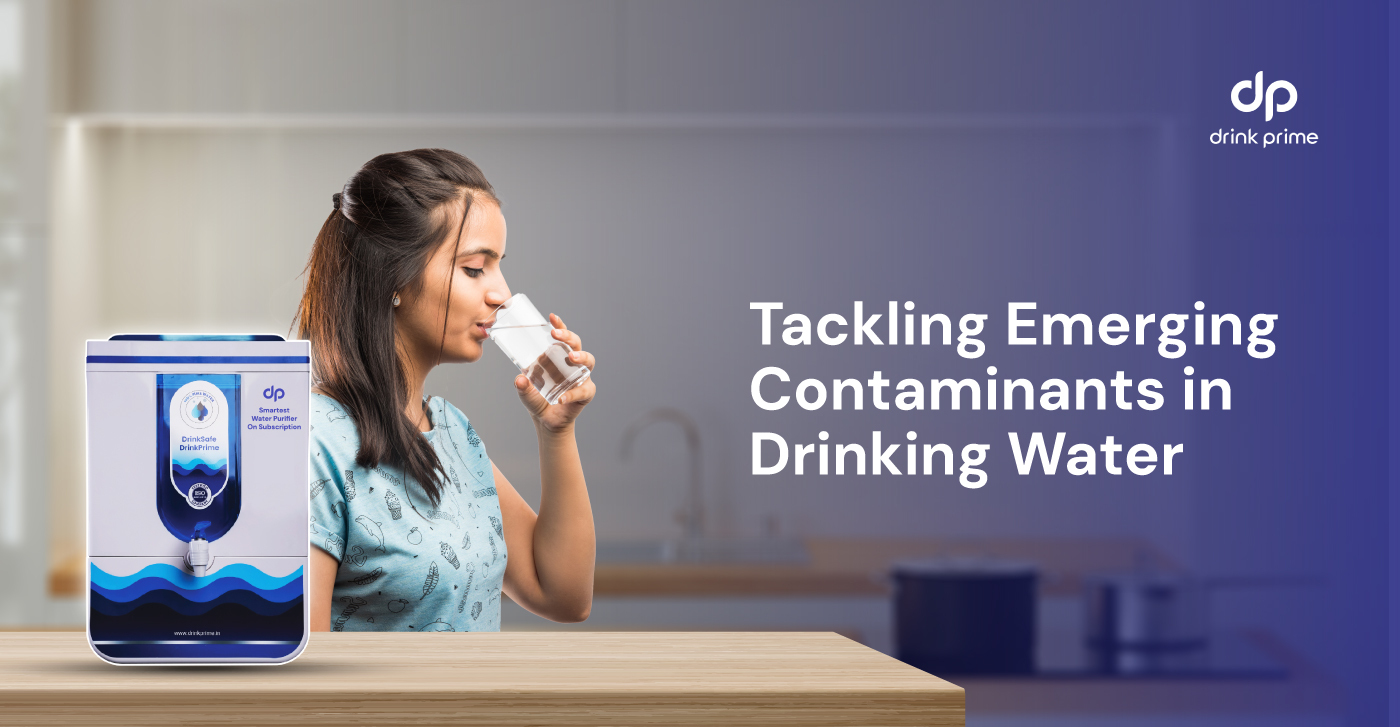Over the past few decades, due to widespread environmental pollution and indiscriminate chemical usage, tap water is not considered safe for consumption. It may contain a host of deadly pathogens and contaminants. To tackle this issue, the two most popular choices of safe drinking water are filtered water and bottled water. Both these options help reduce the pollutants, ensuring that you get to consume pure water. But each comes with its own sets of pros and cons, thus triggering the bottled water vs. filtered water debate.
Here we examine these options in detail, to help you make an informed choice, best aligned to your needs.
What is Filtered water?
Filtered water is tap water that has been purified of contaminants, using a filtration system. The effectiveness of the filtered water depends on the quality and the type of filtration system that is employed. It is usually odorless and tastes better than normal tap water.
There are a variety of filtration systems available:
- Reverse Osmosis
- UV/UF filters
- Activated carbon filters.
- Ion exchange filter
- Water distillers
These water filters are available in a variety of systems, like whole house filtration, faucet filters, under sink filtration, countertop systems, etc. to suit your individual needs. The quality of filtered water, the contaminants it can filter, the odor and taste, etc. depends largely on your source water. The quality of water differs widely even within the same city. So, it is important to test your source water and get professional help to identify a filtration system that is best suited to purify the water available in your area.
Advantages of filtered water
1. Suits your budget
Even though bottled water may appear to be cheap; it may prove to be a costly affair in the long run, especially if you have a big family. Heavy usage means buying more bottles, which will inflate your budget. Though filtered water has a higher initial setup cost, it is a one-time investment, and you get access to as much water as you need. The filters usually last up to a year before they need replacement.
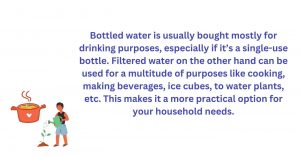
2. Address different needs
Bottled water is usually bought mostly for drinking purposes, especially if it’s a single-use bottle. Filtered water on the other hand can be used for a multitude of purposes like cooking, making beverages, ice cubes, to water plants, etc. This makes it a more practical option for your household needs.
3. Less carbon footprint
Single-use bottles are not easily biodegradable since many of them cannot be recycled. By using a filtration system, you can significantly reduce the use of plastic bottles and help reduce the carbon footprint of the country.
4.Lower maintenance
With filtered water you are saved from the hassle of having to order bottled water, transport it, and store it, thus reducing the time and energy spent.
Disadvantages of filtered water
1. High initial cost
Many people are put off by the expensive installation costs of the system. If cost is your biggest concern, there are options available, like renting water purifiers, to suit your budget, while still addressing your need for pure water.
2. Filter replacement
It is essential that you service your purifier and get your filter replaced at the correct time to ensure its effectiveness. This is a recurring cost that depends on the type of filtration system installed.
What is bottled water?
Bottled drinking water is the packaged water that is widely available in supermarkets. There are varieties of bottled water available like:
- Natural spring water
- Glacier water
- Sparkling water
- Mineral water
The price of bottled water is dependent on factors like the brand, the treatment method, how it is sourced, etc.
Advantages of bottled water
1. Convenience
Bottled water is available almost everywhere, which saves you the hassle of filling water from a filter and carrying it.
2. No installation cost
Water filters come with a hefty installation expense which can be written entirely off with bottled water, as you pay only for the bottle or can. They can work out cheaper especially if your water consumption is low.
3. Less appliance maintenance
Water filters require periodic servicing and filter replacements to ensure that they work optimally. Bottled water has no such hassle.
Disadvantages of bottled water
1. Environmental impacts
Plastic is one of the top pollutants in the world and bottled water is a major contributor. The fossil fuels associated with its manufacturing and the fact that it is non-biodegradable makes it a major contributor to increasing carbon footprint. The plastics come back in terms of microplastics, which are found everywhere, even in the human body, through the bottles we consume water in.
2. Cost factor
Bottled water is ultimately more expensive than filtered water, especially if you have a large family. Switching to filtered water may significantly reduce your spending on water consumption.
Which of the two is better for you?
The system suited for you depends entirely on your priorities. Here are some factors that will help you decide:
Do you want top-quality water for things other than drinking like cooking? If so, filters will be your best choice.
1. Is convenience a priority?
If you want to install a water system and forget about it then filters may be suited best. It saves you the scheduling and transporting hassle of bottled water.
2. Space/ aesthetic concerns
If you want a water system that is discreet and space-saving, like under the sink system, then filters are a good option as water cans take up space and can be unsightly.
3. The frequency of usage
If you expect heavy water consumption then a filter system will be more cost-effective. If you are a bachelor or a small nuclear family, bottled cans can work for your needs.
4. Carbon footprint
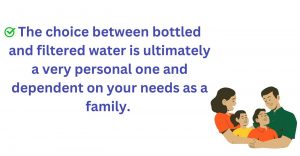
If the thought of contributing to increased carbon footprints makes you uneasy, then filtration systems will ensure that you’re doing your part to reduce the carbon footprint of the country.
Get 7 Days Risk Free Trial
Conclusion
The choice between bottled and filtered water is ultimately a very personal one and dependent on your needs as a family. It is important that you make an informed choice after weighing in on the pros and cons, to ensure that you get access to pure and safe drinking water, which is the top priority.

